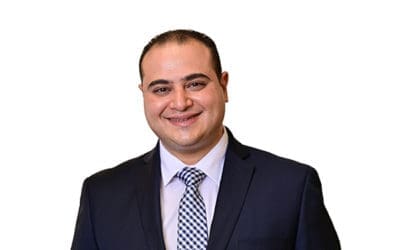If your dentist has suggested wisdom teeth removal, you aren’t alone. Millions of people undergo an extraction of their third molars every year. While wisdom teeth tend to grow and cause trouble in teens and adults between the ages of 17 and 25, they can begin to emerge at any age. In fact, the oldest person to grow a wisdom tooth was 94! If you’re worried about your upcoming procedure, understanding the process may help.
Why Is Wisdom Teeth Removal So Popular?
About 90% of all people will have at least one impacted wisdom tooth in their lifetime. When the teeth do not grow correctly, they may push against your other teeth. An impacted wisdom tooth is painful and can become infected. Signs of an infection include jaw and gum pain, swelling, puss discharge, inability to chew and low-grade fever. Impacted teeth can also cause tooth decay, orthodontic problems and gum disease.
What Can You Expect Before Your Extraction?
Dr. Jose Loza can walk you through the process before your surgery. Make sure to provide an accurate list of your medications and health conditions.
You can choose between local anesthetic, IV sedation and general anesthesia for your wisdom teeth removal.
- Local anesthetic: The dentist numbs your mouth. You may also breathe laughing gas or nitrous oxide during the procedure.
- IV sedation: The dentist supplies drugs through an IV. The drugs can make you drowsy or you may fall asleep.
- General anesthesia: You will receive drugs through a mask or vein. This keeps you asleep throughout the surgery.
What Happens During Wisdom Teeth Extraction?
Most surgeries take 45 minutes or less to complete. First, Dr. Jose Loza will incision your gum tissue to expose your tooth. Next, he will remove any bone that impedes his access to the tooth root. In some cases, the tooth needs to be divided for easy removal. Once removed, he will clean the site. Not all wisdom teeth removal requires stitches, but stitches often encourage healing.
What Can You Do Following the Procedure?
The dentist will provide you with a list of after-care instructions. After-care often includes details on how to avoid dislodging the blood clot, how to clean your mouth and how to manage pain. Some dentists may provide you with prescription pills, but some patients successfully manage pain with OTC pain relievers. Use a cold pack on your jaw to help alleviate pain and swelling.
While you should rest the remainder of the day following your surgery and be careful not to perform any strenuous activity in the days following.
In the first 24 hours, only eat soft foods. Eat semi-soft foods once you feel comfortable enough. Do not eat chewy, hard or spicy foods that could irritate the wound.
Prepare for Wisdom Teeth Removal To Alleviate Your Fears
It is normal to be nervous before your wisdom teeth removal. Dr. Jose is an experienced dentist with a Doctor of Dental Surgery degree. Understanding the process may help ease your mind. If you’re experiencing any discomfort or pain caused by your third molars, book an appointment with Leesburg Dental today!



